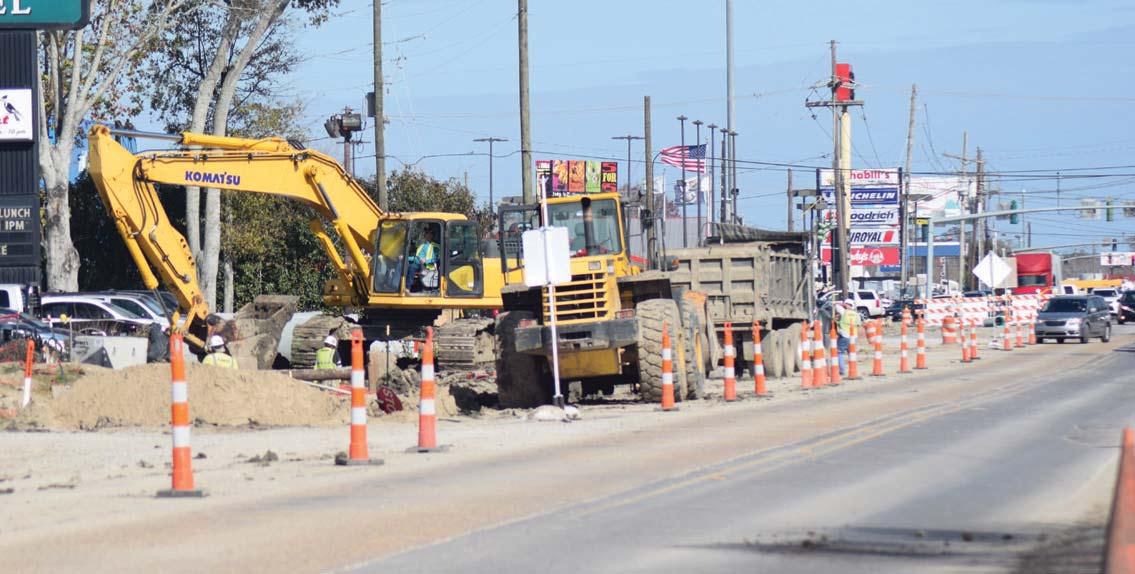WHAT HE SAID…
February 24, 2017
FULL STEAM AHEAD
February 24, 2017We are halfway through Carnival season in the Bayou Region. The krewes who provide great entertainment to home folks and visitors have done a great job and we are sure shall continue to do so.
Even those who do not seek out the festive joy of a Carnival parade, who stay home on weekend nights, can’t help but notice the extra little bit of happiness in the air, as we celebrate an ancient festival that is uniquely ours.
For those who do attend parades, there is nothing like the experience of standing at a curbside, reaching out for a trinket worth nothing in dollar value but everything in emotional currency, sweetened by the realization that at that very moment you are a child, no matter how many earth years you might have.
It is this which is part of the magic attendant to Carnival, to the countdown toward Mardi Gras and Lent, the curious dimorphism, the contrast between both.
There have been untoward incidents along the parade route this year, certainly nothing like the horrific shooting incident that occurred in Thibodaux last year, but disconcerting nonetheless. The fights on the street, the tossing of beads just a little too hard, or maybe very hard in some cases, the report – which could not be substantiated – of a beer bottle being thrown at a crowd, these are all poison to a tradition, little things that can in the long run threaten the freewheeling Carnival spirit that is so much a part of our culture.
It is ironic that reporters talking with krewe officials this week about complaints of riders not wearing masks were told that the masks are indeed optional. The masking, reporters were told, is for the protection of float riders. If someone throws the beads too hard whether or not on purpose and they hit someone, for example, could lead to personal liability for that individual rider. This is why captains of some floats are so clear in their instructions that all must be masked.
We respect the work and effort that goes into making our great Carnival show a success. Float riders spend great sums of money on throws and gifts, and directly or indirectly these expenses become gifts indeed, not just to the recipients but to our communities as a whole.
For this, great thanks are due to all of those who participate.
They are, all of these participants, worthy of great admiration.
But with admiration comes responsibility.
That responsibility begins with riders, extends to float captains, and then ultimately to the captains of the krewes themselves.
They are in a position to exercise dominion over their members and guests. We hear of hard throwing after parades by some krewes and not after the parades of others.
“Boy will be boys” is not a good enough excuse for such aberrant behavior.
Clubs should consider holding captains responsible for the conduct of their riders. This may be the only way to more thoroughly ensure compliance with already existing rules.
Perhaps our communities may wish to consider closely examining parades, to determine what is really going on, monitoring them to see if there is a better way.
Perhaps next year can serve as a test of sorts, a way of determining if stricter official action needs to be taken. And what action might that be?
For one thing, if the krewes don’t clean up their acts, one action that could be considered is the elimination of masks. Masking is an honored Carnival and Mardi Gras tradition. Its history is difficult, at best, hearkening to a time when Mardi Gras and Carnival riders and revelers had reason to keep their faces hidden. Mardi Gras Day – Fat Tuesday – in New Orleans and other communities, was once considered the day for settling scores.
Unmasking of riders would add a measure of accountability. A miscreant could be identified through our ubiquitous technology devices.
We would regret the imposing of such a restrictive rule or ordinance. Such a move would strip away a tradition, and at this point we need to preserve all the traditions we have. Maybe the potential might give krewe leaders and riders cause to more seriously evaluate behaviors, however.
We believe it is something worth discussing. We hope it does not become a necessity. ∙






